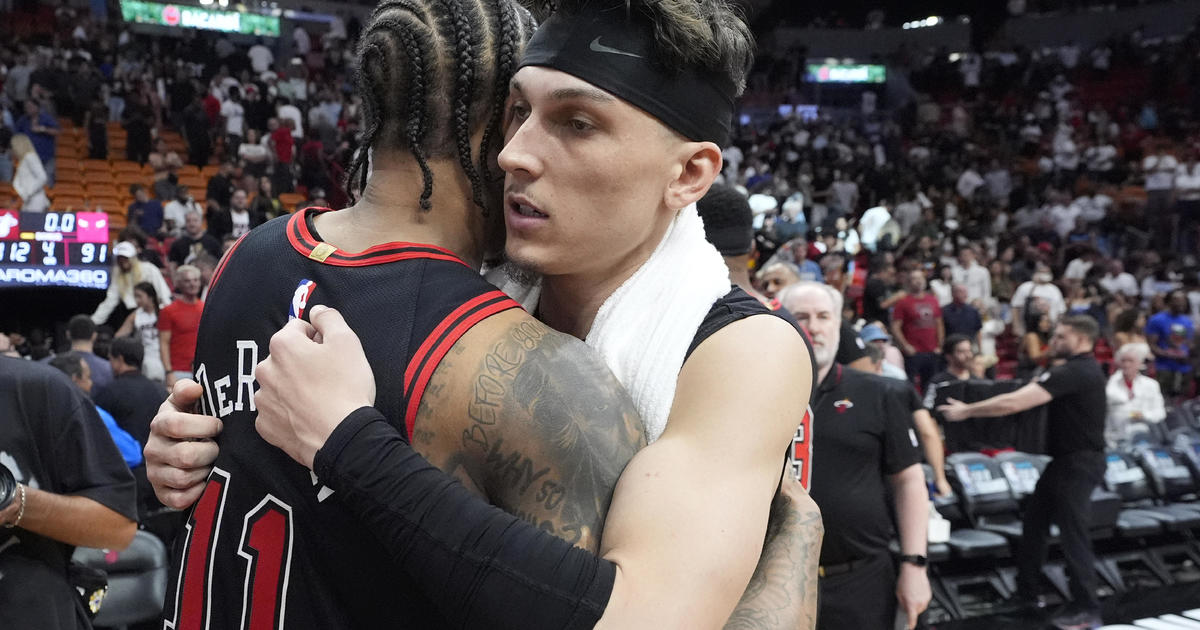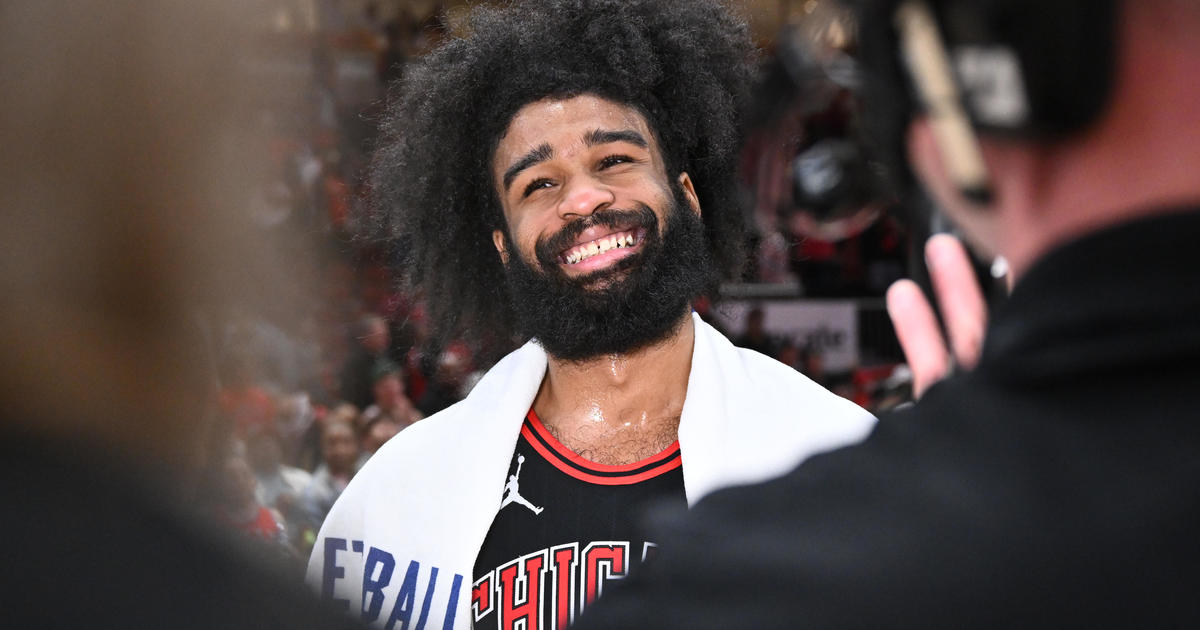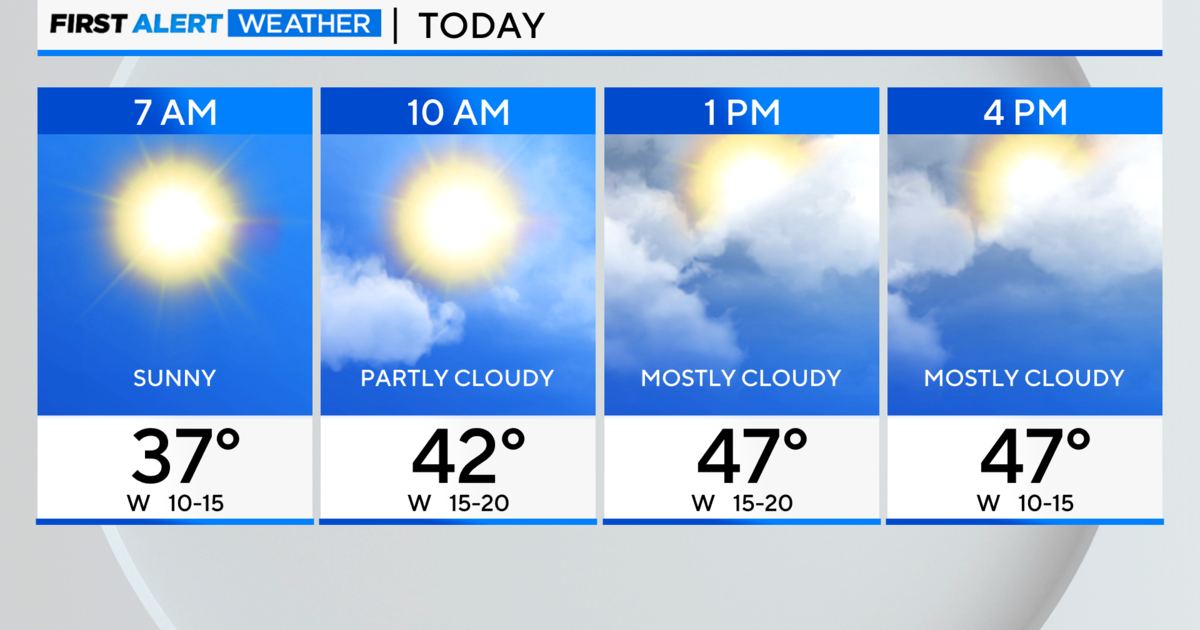Gar Forman: Future Salary Cap Space Vital In Bulls' Plan Moving Forward
By Cody Westerlund--
(CBS) As the Bulls attempt a roster overhaul on the fly, much has been made of star Jimmy Butler's future, their player development and where they'll land in this June's draft.
All of that plays a crucial role moving forward in a Bulls' plan that currently remains staying competitive while developing youngsters around a few veterans providing quality leadership. Amid this partly cloudy vision, there's also another key element that general manager Gar Forman has been harping on lately: the ability to have salary cap space -- and thus flexibility -- in the coming summers.
He believes that's of "extreme importance" and pointed to that as a primary reason for not handing out a contract longer than two years in 2016 free agency.
"We also knew as part of that plan that we'd have to be very disciplined in what we're doing," Forman told Matt Spiegel and Barry Rozner on 670 The Score on Friday. "There's a new CBA in place, and there was a huge cap spike a year ago where you saw a large number of long-term contracts given out to veteran players. And we're going to look at another cap spike this summer because of the TV revenue, and as we began to add youth, we didn't want to lock ourselves in to some of those deals at that time because we feel that there's going to be a flattening of the cap after this summer, and we want to set ourselves up for opportunities that are going to present themselves with having flexibility within our budget. And a big part of our job is managing our cap, especially as we redo this roster."
Gar Forman with Spiegel and Rozner
The Bulls will have ample and perhaps significant cap space this summer. It's expected they'll part ways with veteran point guard Rajon Rondo. If Dwyane Wade doesn't exercise his $23.8-million option for 2017-'18, they figure to have around $50 million in cap space, depending on their approach with restricted free agents and how they go about renouncing rights to such players. Even if Wade opts in, Chicago would still have room for a maximum or near-max contract.
Of course, Forman's thinking even further ahead. He's cited summer 2018 and 2019 as times the Bulls could pounce as well with their flexibility and use it in a variety of ways -- if not by signing a player, then by swinging a trade that's financially uneven or absorbing bad salary with draft picks attached as incentive. Only Butler and center Robin Lopez are on non-rookie contracts for the 2018-'19 season.
"We knew we wanted to try to remain competitive," Forman said. "We didn't want to tank down to where we're a 10- or 15-win team, but we knew in taking a step back, there'd be some bumps in the road. There has been, but we think we've set ourselves up as far as beginning to add youth and get those guys on the floor and position ourselves as far as the cap is concerned into the future to take advantage of opportunities. What those opportunities are, if you study the league historically, they're going to come. It could be using cap room, but it could also be uneven financial trades or as teams put themselves in a position where they're up against a tax or in the tax, it's taking back salary and getting assets such as picks to continue with retooling the roster.
"When really good players become available via trade, you've got to set yourself up to be in the ball game to be in those conversations. If you don't from a financial standpoint, then it's difficult to do those things."
There are a few wrinkles to this portion of the Bulls' plan. After a league-wide spending spree in 2016 free agency, it assumes teams will take a similar approach this July and continue to back themselves into a financial corner. There's no telling if that happens again. The new collective bargaining agreement incentivizes star players in their prime to stay with their original teams in the form of contracts that can blow past $200 million, so there might not be as many marquee players on the trade market in the coming years. The Bulls' belief also relies in large part on the salary cap flattening after 2017, which it's expected to do but also not certain of doing.
Nonetheless, Forman and the Bulls remain steadfast in their approach. He emphasized that ownership has left the plan and roster-building approach up to management, and when asked if the Bulls are closer to a championship than they were 11 months ago at the end of a disappointing 2015-'16 season, Forman replied, "We're heading that direction."
"I know a lot of people talk about getting stuck in the middle," Forman said. "I think if you have a capped-out roster and you're in that position, then you've put yourself in a very difficult position. But if you've got young players and you continue to add young players and you have a level of flexibility, that's where I think you've got a chance to take yourself out of that position and continue to build a roster that can compete at a high level.
"It takes time. You're not going to address all your needs overnight."
Cody Westerlund is a sports editor for CBSChicago.com and covers the Bulls. He's also the co-host of the @LockedOnBulls podcast, which you can subscribe to on iTunes and Stitcher. Follow him on Twitter @CodyWesterlund.



